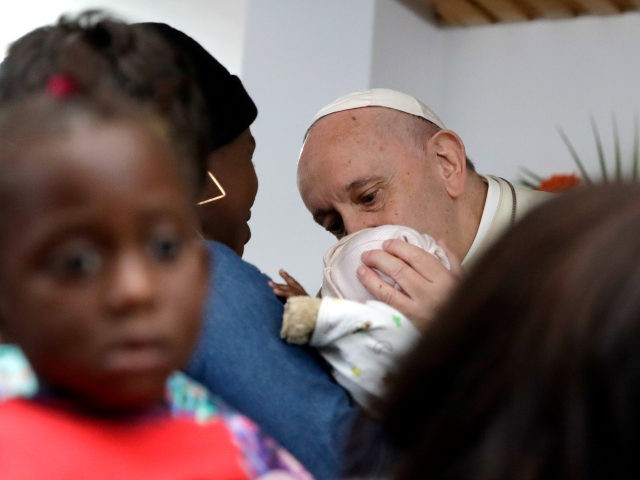Pope Francis took advantage of his visit to the Zimpeto Hospital in Mozambique Friday to tell patients and doctors that their experience of illness and infirmity should make them more attentive to the sufferings of the environment.
The earth “is among the most abandoned and maltreated of our poor; she ‘groans in travail,’” the pope told patients suffering from cancer, tuberculosis, HIV/AIDS, as well as malnutrition patients and their caregivers.
It is wonderful to see how listening to the sick “puts us in contact with another part of our vulnerable world,” Francis said. “I think of the symptoms of sickness evident in the soil, in the water, in the air and in all forms of life… the earth herself, burdened and laid waste, is among the most abandoned and maltreated of our poor; she ‘groans in travail.’”
We “all come from the same stock,” the pope continued. “You have recognized this and your listening is leading you to find sustainable means in the search for energy and for gathering and storing supplies of water.”
“Your concern for low environmental impact is a virtuous model, an example to be followed, in the light of the urgent situation created by the deterioration of our planet,” he added.
Pope Francis has made environmental concern and care for the planet one of the hallmarks of his papacy, penning the first encyclical letter on ecology in the 2000-year history of the Catholic Church.
In that 2015 encyclical, titled Laudato Si (May You Be Praised), the pope criticized an anthropocentric view of the world that overvalues the place of human beings in creation and jeopardizes the “intrinsic dignity of the world.”
“Modernity has been marked by an excessive anthropocentrism which today, under another guise, continues to stand in the way of shared understanding and of any effort to strengthen social bonds,” Francis wrote.
“An inadequate presentation of Christian anthropology gave rise to a wrong understanding of the relationship between human beings and the world,” he said, adding:
Often, what was handed on was a Promethean vision of mastery over the world, which gave the impression that the protection of nature was something that only the faint-hearted cared about. Instead, our “dominion” over the universe should be understood more properly in the sense of responsible stewardship.
“When human beings fail to find their true place in this world, they misunderstand themselves and end up acting against themselves,” he said.

COMMENTS
Please let us know if you're having issues with commenting.